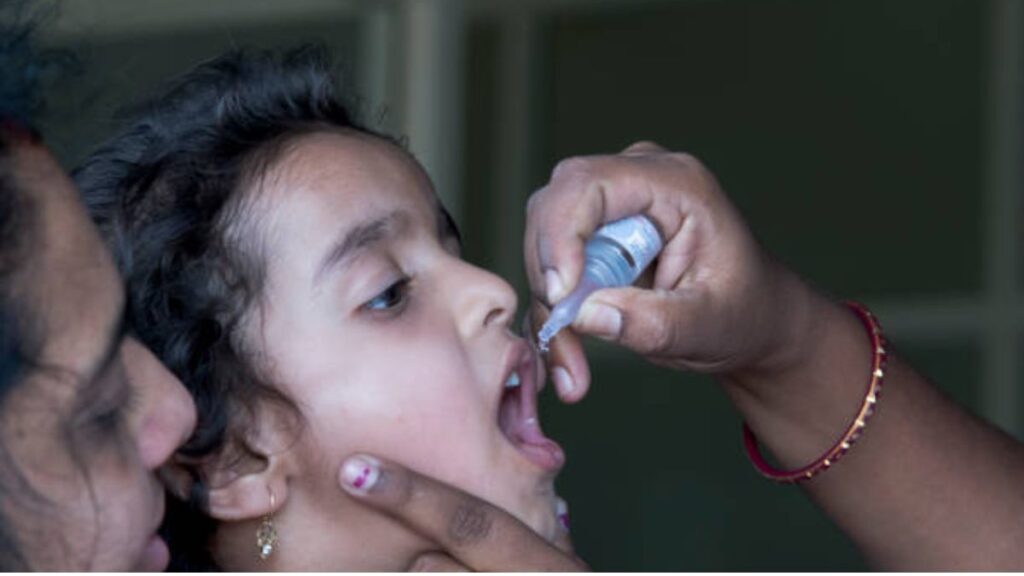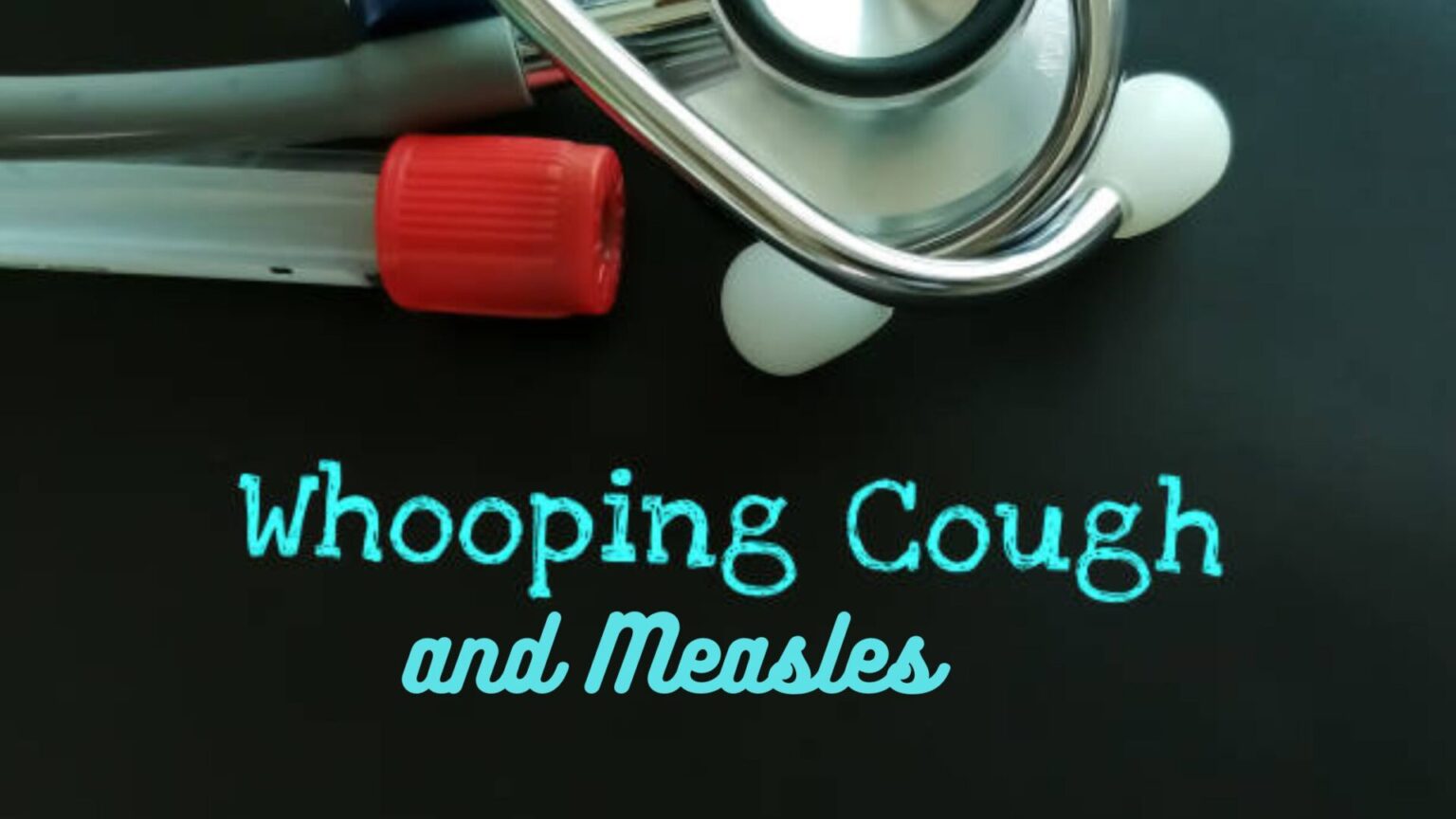Introduction:
Whooping Cough and Measles: Vaccination on the Rise

In recent times, the resurgence of preventable diseases like whooping cough and measles has sparked concerns globally. However, amidst these rising cases, there’s a glimmer of hope: vaccination rates are also on the rise. Let’s delve into why this is crucial and how it reflects a positive shift in public health consciousness.
Whooping cough and measles
Understanding the Resurgence: Whooping cough (pertussis) and measles are highly contagious diseases that were once under control thanks to widespread vaccination programs. However, in recent years, there has been a concerning resurgence of these illnesses in various parts of the world. Factors contributing to this resurgence include vaccine hesitancy, waning immunity, and gaps in vaccination coverage.
The Importance of Vaccination: Vaccination remains the most effective way to prevent whooping cough and measles outbreaks. Vaccines not only protect individuals who receive them but also contribute to herd immunity, safeguarding those who cannot be vaccinated due to medical reasons. With highly contagious diseases like whooping cough and measles, even small pockets of unvaccinated individuals can lead to widespread outbreaks.
Factors Driving Vaccination on the Rise: Amidst the resurgence of these diseases, there’s been a notable increase in vaccination rates. Several factors contribute to this positive trend:
- Heightened Awareness: The resurgence of whooping cough and measles has drawn significant media attention, raising awareness about the importance of vaccination.
- Public Health Campaigns: Governments and health organizations have intensified their efforts to educate the public about the benefits of vaccination and address misinformation surrounding vaccines.
- Community Engagement: Local communities, healthcare providers, and schools are actively promoting vaccination initiatives to ensure high immunization coverage.
- Policy Measures: Some regions have implemented stricter vaccination policies, such as mandatory vaccination for school enrollment, to improve vaccination rates and protect public health.
The Role of Healthcare Providers: Healthcare professionals play a crucial role in encouraging vaccination and addressing vaccine hesitancy among patients. By providing accurate information about vaccines, addressing concerns, and emphasizing the importance of immunization, healthcare providers can help build trust and confidence in vaccination.
Looking Ahead: While the increase in vaccination rates is a positive development, there is still work to be done to achieve optimal immunization coverage. Continued efforts to combat vaccine misinformation, improve access to vaccines, and strengthen vaccination policies are essential to prevent future outbreaks of whooping cough, measles, and other vaccine-preventable diseases.
Why is vaccination for whooping cough and measles trending?
The trending interest in vaccination for whooping cough (pertussis) and measles could stem from several factors:

- Outbreaks: Periodic outbreaks of these diseases can draw attention to the importance of vaccination. Measles, for example, experienced a resurgence in various parts of the world in recent years due to declining vaccination rates.
- Public Health Campaigns: Health organizations and governments may be running campaigns to promote vaccination against these diseases, particularly targeting demographics with lower vaccination rates or areas experiencing outbreaks.
- Misinformation and Vaccine Hesitancy: The spread of misinformation about vaccines, particularly on social media platforms, can contribute to vaccine hesitancy. Debunking myths and providing accurate information about the safety and efficacy of vaccines is crucial in addressing this issue.
- Legal and Policy Changes: Changes in vaccination laws or policies, such as mandates for school attendance or employment, can spark discussions and debates about the necessity of vaccination against diseases like whooping cough and measles.
- Global Health Concerns: With increasing global connectivity, outbreaks in one part of the world can quickly become international concerns. This interconnectedness highlights the importance of vaccination as a preventive measure against the spread of infectious diseases.
Overall, the trending interest in vaccination for whooping cough and measles underscores the ongoing importance of immunization in protecting public health and preventing the resurgence of vaccine-preventable diseases.
What are the risks of not vaccinating against whooping cough and measles?
The risks of not vaccinating against whooping cough (pertussis) and measles include:
- Increased susceptibility to the diseases: Without vaccination, individuals are more susceptible to contracting whooping cough and measles if they come into contact with the respective pathogens. Both diseases are highly contagious and can spread easily among unvaccinated populations.
- Severe health complications: Whooping cough and measles can lead to severe health complications, particularly in vulnerable populations such as infants, pregnant women, and individuals with compromised immune systems. Complications of whooping cough may include pneumonia, seizures, brain damage, and even death. Measles can cause pneumonia, encephalitis (brain inflammation), blindness, and death.
- Outbreaks: Unvaccinated individuals can serve as sources of infection, leading to outbreaks within communities. Measles, for instance, is highly contagious, and outbreaks have occurred in areas with low vaccination rates, putting unvaccinated individuals at risk and straining healthcare systems.
- Loss of herd immunity: Not vaccinating against these diseases can weaken herd immunity within a population. Herd immunity occurs when a significant portion of the population is immune to a disease, reducing the likelihood of its spread. When vaccination rates decline, herd immunity decreases, leaving vulnerable individuals unprotected.
- Economic burden: Outbreaks of vaccine-preventable diseases impose a significant economic burden on healthcare systems, communities, and individuals. Costs associated with medical treatment, outbreak control measures, and productivity losses can be substantial.
- Missed school and work: Illnesses caused by whooping cough and measles can result in missed days of school or work for affected individuals, leading to disruptions in education, employment, and daily life.
Overall, not vaccinating against whooping cough and measles not only endangers individual health but also undermines public health efforts to control and prevent the spread of these potentially dangerous diseases.
What is the current state of vaccination rates for whooping cough and measles globally?
Here’s a general overview:
- Measles: The World Health Organization (WHO) aims for at least 95% coverage with two doses of measles-containing vaccine (MCV) to achieve herd immunity and prevent outbreaks. However, vaccination rates vary across regions and countries. Some areas have achieved high vaccination coverage and effectively eliminated measles, while others continue to experience outbreaks due to inadequate vaccination rates or other challenges.
- Whooping Cough: Vaccination against whooping cough is typically included in routine childhood immunization schedules in many countries. The coverage rates for whooping cough vaccination may also vary, with some countries achieving high coverage rates through their immunization programs.
It’s important to note that vaccination rates can change over time due to various factors such as changes in healthcare policies, public health initiatives, vaccine hesitancy, outbreaks, and access to healthcare services. Continuous monitoring and efforts to improve vaccination coverage are essential to prevent the resurgence of vaccine-preventable diseases and protect public health globally.
For the most up-to-date information on vaccination rates for whooping cough and measles globally, it’s advisable to consult recent reports and data from organizations such as the World Health Organization (WHO) and the Centers for Disease Control and Prevention (CDC).
Conclusion:
The resurgence of whooping cough and measles underscores the importance of vaccination in protecting public health. With vaccination rates on the rise, there is hope for stemming the tide of these preventable diseases and ensuring healthier communities worldwide. By prioritizing vaccination and addressing barriers to immunization, we can work towards a future where outbreaks of whooping cough and measles become a thing of the past.
FAQ
Qu.1. Does measles cause whooping cough?
No, measles does not cause whooping cough. Measles and whooping cough (pertussis) are two different diseases caused by different pathogens. Measles is caused by the measles virus, while whooping cough is caused by the bacterium Bordetella pertussis. Both diseases have distinct symptoms, transmission routes, and vaccination strategies.
Qu.2. How can I protect myself and my family from whooping cough and measles outbreaks?
- Get vaccinated: Ensure that everyone in your family is up-to-date with their vaccinations for both whooping cough (pertussis) and measles.
- Practice good hygiene: Wash your hands frequently with soap and water, especially after being in public places or around individuals who may be sick.
- Cover coughs and sneezes: Encourage family members to cover their mouths and noses with a tissue or their elbow when coughing or sneezing to prevent the spread of respiratory droplets.
- Avoid close contact with sick individuals: Limit exposure to individuals who have symptoms of whooping cough or measles, and seek medical attention if you or a family member develop symptoms.
- Stay informed: Stay updated on local outbreaks and public health recommendations regarding vaccination and disease prevention measures.
- Follow public health guidelines: Follow any recommendations or guidelines issued by public health authorities to reduce the risk of exposure to whooping cough and measles during outbreaks.
By taking these steps, you can help protect yourself and your family from whooping cough and measles outbreaks and reduce the spread of these vaccine-preventable diseases.
Qu.3. Where can I get vaccinated against whooping cough and measles?
You can typically get vaccinated against whooping cough and measles at various healthcare providers, including your family doctor, pediatrician, local health department, community health clinics, and pharmacies. It’s advisable to check with your healthcare provider or local health department for information on vaccination availability and scheduling.
REFERENCES
However, you can find information on the topics discussed in reputable sources such as:
- World Health Organization (WHO) – The WHO regularly publishes reports, guidelines, and updates on vaccination efforts, including information on whooping cough and measles vaccination.
- Centers for Disease Control and Prevention (CDC) – The CDC provides extensive resources on vaccine-preventable diseases, including data, research, and recommendations for vaccination against whooping cough and measles.
- Peer-reviewed scientific journals – Journals such as The Lancet, Vaccine, and the Journal of Infectious Diseases often publish research articles and reviews on vaccine development, vaccination strategies, and disease epidemiology, including topics related to whooping cough and measles.
- Health news outlets – Trusted health news outlets such as the BBC Health, NPR Health, and Reuters Health often report on developments in vaccination efforts and disease prevention strategies.






